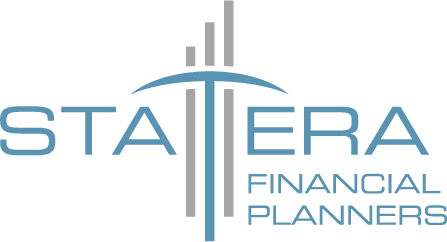Essential Strategies for Saving for Your First Home In Edmonton Alberta

Essential Strategies for Saving for Your First Home In Edmonton Alberta
Saving for your first home can be daunting, especially with rising costs and credit complexities. A survey found that nearly 60% of first-time buyers struggle with down payments. This guide explores key strategies, including budgeting, government incentives, and the First Home Savings Account (FHSA), to help you take control of your finances and achieve homeownership.
Setting a Clear Savings Goal
Establishing a target amount for your down payment keeps you motivated and on track. Utilizing tax deductions can enhance savings, while a well-structured budget helps allocate funds efficiently. Redirecting a portion of each pay cheque to a dedicated home savings account accelerates progress.
Understanding the First Home Savings Account (FHSA)
The First Home Savings Account (FHSA) offers tax-free growth on savings, making homeownership more attainable. This account allows individuals to invest their savings, benefiting from tax advantages while preparing for their first property purchase.
Key Benefits of Using an FHSA for Home Savings
- Tax Deductions: Provides deductions to your current year income, like a RRSP does
- Tax-free growth: Boosts savings potential.
- Strategic savings approach: Helps manage future home-related costs.
- Investment opportunities: Allows funds to grow in a wide variety of assets.
FHSA Eligibility
To qualify for the First Home Savings Account (FHSA), applicants must be first-time homebuyers or have not owned a home in the past four years. They must also be Canadian residents and at least 18 years old. Meeting these criteria allows buyers to benefit from tax advantages while saving for a down payment, helping them manage homeownership costs like insurance, inspections, and repairs more effectively.
Determining Your Home Price Range
Along with completing a mortgage preapproval, it’s as important to analyze your monthly income and expenses to determine affordability. Consider local market conditions and income tax implications to make informed mortgage decisions.
Creating a Monthly Savings Plan
A successful savings plan starts with assessing income and expenses to determine how much can be set aside each month. Tracking expenditures and accounting for necessary costs, like a home inspection, home insurance and legal fees, helps identify potential savings. Automating transfers to a dedicated account ensures consistency and minimizes spending temptations. Researching government grants and tax benefits can further accelerate progress toward homeownership.
Utilizing Budgeting Tools
Budgeting tools streamline the saving process for first-time homebuyers by tracking spending and identifying areas to cut back, such as dining out or subscriptions. Apps linked to bank accounts provide automatic insights, allowing individuals to redirect funds. Social media platforms like Facebook offer community groups where buyers share budgeting tips and resources. Engaging with others facing similar challenges provides support and motivation, making homeownership more attainable. Financial Planners also have a plethora of tools and strategies to help you get ahead of the cash flow.
Exploring Government Incentives and Programs
First-time homebuyer incentives help reduce the financial burden of purchasing a home. Programs like the Home Buyers' Plan allow individuals to withdraw funds from their registered retirement savings plan (RRSP) for a down payment, lowering financial risk. Maintaining a good credit score improves access to government-backed programs and better loan rates, making homeownership more affordable. Understanding eligibility criteria ensures buyers maximize available benefits and navigate the process successfully.
How to Leverage the Home Buyers' Plan
The Home Buyers' Plan (HBP) allows first-time buyers to withdraw up to $60,000 from their registered retirement savings plan (RRSP) for a down payment, without withholding tax penalties. To avoid those penalties, buyers must repay the amount within 15 years through annual contributions. Understanding repayment terms ensures a smooth transition into homeownership and long-term financial stability.
Understanding Tax Benefits Related to Home Buying
Tax benefits help first-time homebuyers reduce financial burdens. The Goods and Services Tax (GST) credit allows buyers to recoup part of the taxes paid on their home purchase, while mortgage insurance deductions provide additional savings. Staying informed about interest rate fluctuations is essential for managing mortgage costs. Engaging with platforms like Twitter can keep buyers updated on tax policy changes, ensuring they maximize available incentives and make informed financial decisions.
Effective Saving Techniques to Reach Your Goal
Automating savings simplifies setting aside funds for a home, while choosing the right savings account boosts growth. Cutting expenses frees up more money, a crucial step for first-time homebuyers in Canada, where factors like security deposits and rental laws matter. These strategies help prospective homeowners stay financially prepared for their future property.
Automating Your Savings
Automating savings helps first-time homebuyers build their deposit account effortlessly. Setting up direct transfers from a primary bank account to a savings or investment account ensures a portion of income is saved right after payday, reducing spending temptations and fostering disciplined saving.
This strategy also enhances financial management. Linking the deposit account to a social insurance number simplifies tracking, while consulting a mortgage broker can reveal how these savings strategies align with refinancing options, optimizing the path to homeownership.
Tips for Reducing Expenses to Save More
Cutting expenses is a smart way to boost savings for a first home. Reviewing monthly costs can reveal unnecessary subscriptions or dining-out habits that strain budgets. Redirecting these funds toward savings helps cover future expenses like property tax and maintenance.
Simple changes like meal planning and using public transportation can generate significant savings over time, counteracting inflation and strengthening financial security. Proactively managing expenses allows aspiring homeowners to maximize their savings and confidently transition into homeownership.
Preparing for the Home Buying Process
First-time buyers should secure mortgage pre-approval to set a financial foundation and assess borrowing capacity. Understanding closing costs and comparing mortgage options ensures informed decisions, boosting financial literacy for a smooth home purchase.
Importance of Mortgage Pre-Approval
Mortgage pre-approval helps first-time buyers set a clear budget and understand borrowing limits. Using a mortgage calculator, they can estimate monthly payments, avoiding surprises and aligning their home search with financial reality.
Pre-approval strengthens offer positions and streamlines the buying process. Lenders assess financial health, including second mortgage scenarios, while clear communication clarifies options and additional costs. This ensures buyers make informed decisions on their path to homeownership.
Understanding Closing Costs and Their Impact on Savings
Closing costs, typically 2% to 5% of a home's price, cover legal fees, inspections, and potential renovations to meet building codes. Overlooking these expenses can strain savings, making planning essential.
First-time buyers should assess and budget for these costs to manage assets effectively. Communicating with lenders clarifies fees and helps compare offers, ensuring a well-prepared financial plan for both home purchase and future improvements.
Conclusion
Buying your first home requires clear goals, financial tools, and a realistic budget. Utilizing programs like the First Home Savings Account and tax benefits can boost savings, while a structured monthly plan and budgeting tools streamline the process. These strategies help buyers navigate the housing market with confidence.

As financial planners, we do not provide specific tax and legal advice. You should always consult your accountant and/or lawyer where necessary. Because of the many ways a strategy may be impacted when segmented, we prefer to communicate collectively with your external professionals to ensure that all recommendations and action plans are in the overall best interest of you, with your professionals working with common goals in mind.
You are never obligated to act on our recommendations of products, services, or advice.
